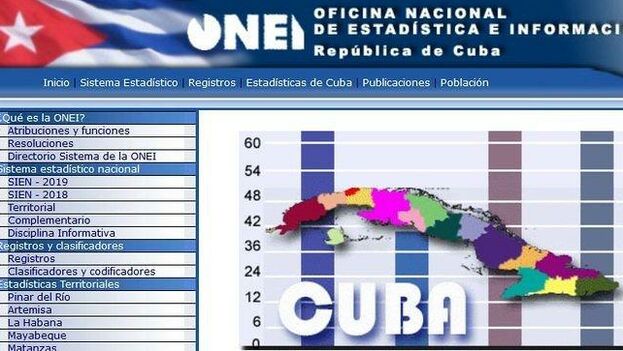
![]() 14ymedio, Yoani Sanchez, Havana, 6 January 2019 — Recently, the official press announced that infant mortality in Cuba during 2019 was 5 children per thousand live births. The Communist Party owned Granma newspaper stressed that this meant that the Island continued to have better indicators than many countries in Latin America and the world, but did not mention that the data represented a significant increase in deaths compared to the previous year. Did more babies die during that time or could the Ministry of Public Health not continue to scale down the data as it has done over the past few years?
14ymedio, Yoani Sanchez, Havana, 6 January 2019 — Recently, the official press announced that infant mortality in Cuba during 2019 was 5 children per thousand live births. The Communist Party owned Granma newspaper stressed that this meant that the Island continued to have better indicators than many countries in Latin America and the world, but did not mention that the data represented a significant increase in deaths compared to the previous year. Did more babies die during that time or could the Ministry of Public Health not continue to scale down the data as it has done over the past few years?
The reasons for this sad increase can be varied, from the deterioration suffered by the Cuban healthcare system, to the incidence of teenage pregnancies with their frequent complications, to the problems resulting from nutritional deficits in mothers who have grown up with difficulties in accessing basic foods. But, the worsening in the statistics points more to the fact that it was not possible to continue covering the sun with a finger.
In the last year, in social networks there have been frequent reports of the deaths of children as a result of complications at birth, obstetric errors and other medical negligence. The stories of postpartum deaths in health facilities and reports on the poor conditions of maternal hospitals have found a space to be reported on the internet, while the media controlled by the Communist Party continues to paint a health situation far removed from reality.
Not even these five deaths per thousand live births reflect the truth, nor will the Gross Domestic Product that will be announced shortly represent the reality of the country’s economy, nor will the index of daily calories consumed on the Island — according to the data that the authorities have sent to the United Nations Food and Agriculture Organization – have anything to do with what is put on Cubans’ table.
Also inflated have been the statistics of workers with jobs – it is enough to walk the streets on a Monday morning to shatter that triumphalism – as have been the numbers relating to the number of people supplied clean drinking water, nad the volume of internet connections, along with many of the inflated figures attributed to production in the state sector.
That same approach to data thins the numbers of crimes, femicides, emigration and the real incidence of preventable diseases. With their stubborn will to make the national and international audience believe that Cuba has implemented best possible systems, the media and official reports have taken the bubble of unreality to a point where the only thing it can do is implode.
Like the false villages that Gregorio Potemkin raised along the river to make Catherine the Great believe a fiction of prosperity, Cuban statistics are formed by a daring of lies and exaggeration. But unlike imperial Russia, in this case the highest authorities are part of the deception, while the sweetened representation of reality is oriented towards the population, international organizations and public opinion.
A democratic Cuba cannot live with such falsehoods. So the staging will fall and we will face down against the real numbers that show the seriousness of the problems. The press will talk about a deterioration of life and a plummeting of numerous indicators, but it will be necessary to clearly separate the difficulties arising from a change in the model and those that had been hidden in the shadows for decades without being able to be shown.
In the Cuba that is undoubtedly to come there will also be nostalgia for the past, as there is currently for the Soviet Union or communist Germany. But, to be avoided at all costs is that the possible longings of some are built on the falsity of figures adulterated for decades.
This “bite” is practically inevitable in a country where transparency and direct access to public data must prevail. An open government, which maintains direct, permanent and bidirectional communication between the administration and the citizens, will have to shake off its two fundamental defects: secrecy and triumphalism and, along with that, present the numbers as they are, which will lead to the deflation of some unrealistic figures.
_________________
COLLABORATE WITH OUR WORK: The 14ymedio team is committed to practicing serious journalism that reflects Cuba’s reality in all its depth. Thank you for joining us on this long journey. We invite you to continue supporting us by becoming a member of 14ymedio now. Together we can continue transforming journalism in Cuba.
